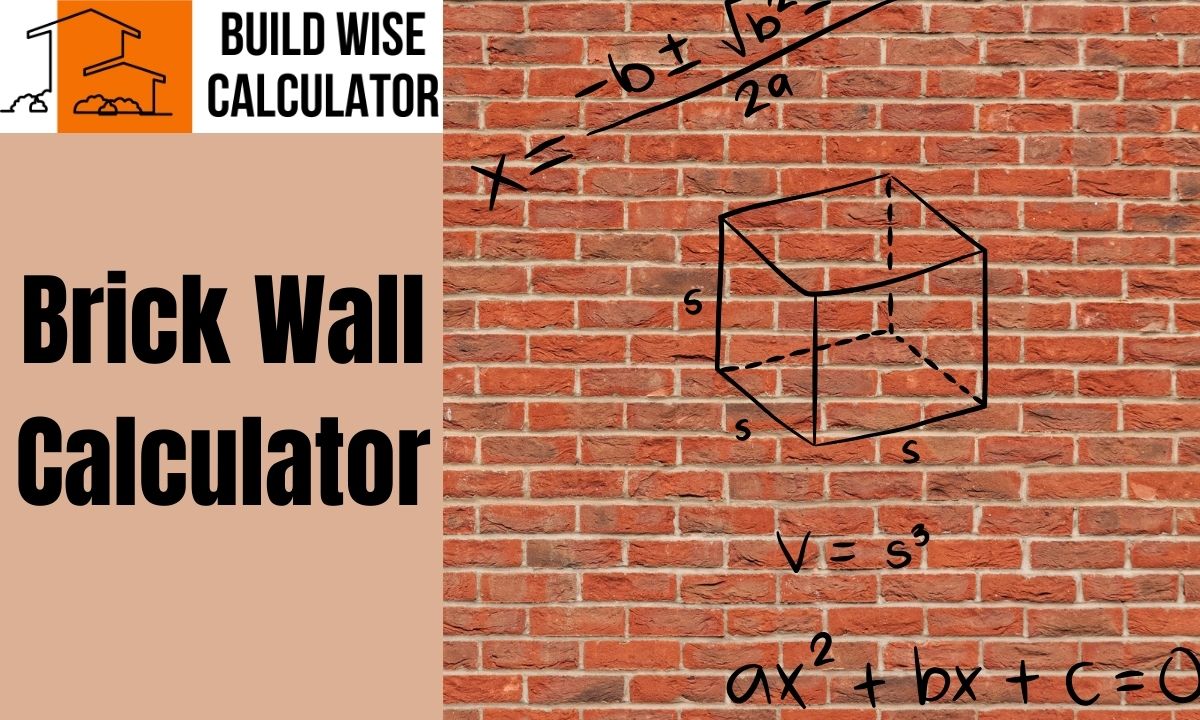How to Calculate the Number of Bricks Needed
To calculate the number of bricks required, you'll need the following information:
- Wall Dimensions (length and height)
- Brick Dimensions (length, height, and thickness)
- Mortar Gap (space between the bricks, if applicable)
To calculate the number of bricks required for a wall, you can use the following formula:
Number of Bricks=Brick Area+Mortar AreaWall Area
Calculate the Wall Area:
The area of the wall can be calculated by multiplying the length and height of the wall:
Wall Area=Wall Length×Wall Height
Calculate the Area of One Brick:
Next, you need to calculate the area of a single brick (including the mortar gap, if necessary):
Length with Mortar=Brick Length+Mortar Thickness
Height with Mortar=Brick Height+Mortar Thickness
Brick Area=Length with Mortar×Height with Mortar
Now, you can calculate the total number of bricks required by dividing the total wall area by the area of a single brick:
Number of Bricks=Brick AreaWall Area
Adjust for Wastage:
It is common to add around 5% to 10% extra bricks to account for wastage or breakage. To do this:
Total Bricks=Number of Bricks×(1+Wastage Percentage)
For example, if you estimate 5% wastage
Total Bricks=Number of Bricks×1.5
How to Calculate the Total Cost of Bricks
Once you have the total number of bricks required, the next step is to calculate the total cost. This is straightforward:
Total Cost=Total Bricks×Cost Per Brick
For example, if one brick costs $0.50 and you need 1000 bricks:
Total Cost=1000×0.50
Total Cost=500
Example Calculation
Let’s break this down with an example:
- Wall Dimensions: Length = 20 feet, Height = 10 feet
- Brick Dimensions: Length = 8 inches, Height = 4 inches
- Mortar Thickness: 0.5 inch
- Cost Per Brick: $0.60
- Wastage: 5%
Calculate the Wall Area:
Wall Area=20×10=200square feet
Calculate the Brick Area (convert dimensions to feet for consistency):
Brick Area=(128+120.5)×(124+120.5)
Brick Area=0.7292square feet
Calculate Number of Bricks:
Number of Bricks=0.7292200
Number of Bricks=274.36(≈275bricks)
Account for Wastage:
Total Bricks=275×1.05Total Bricks=288.75(≈289 bricks)
Calculate Total Cost:
Total Cost=289×0.60=173.40
Conclusion
Estimating the number of bricks and total cost for a wall can be challenging if done manually. With the Brick Wall Calculator, the process becomes much simpler. By following the formulas provided or using the calculator, you can plan your project with confidence, knowing you’ve budgeted for the correct number of bricks and total cost.

Check out 32 Similar Calculators: